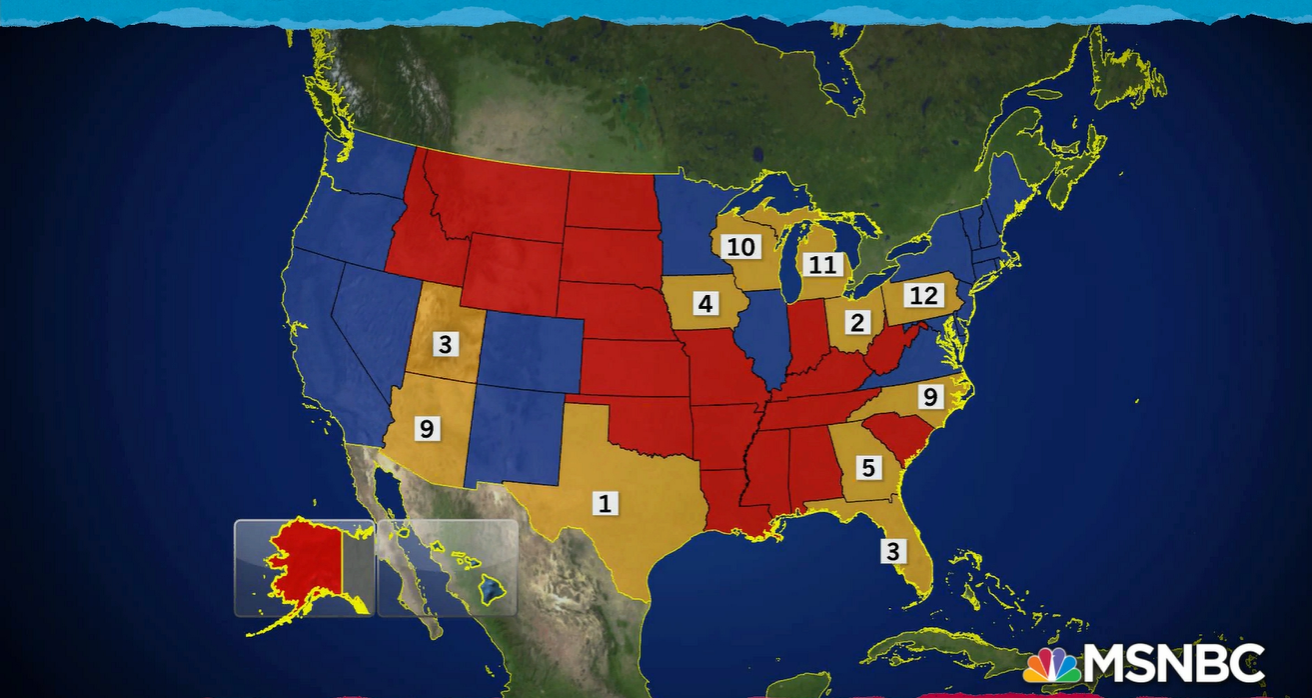|
I keep seeing talking heads refer to national polls showing the current president trailing various Democratic candidates indicating that these candidates may win in a general election in the fall of 2020. Let me disabuse you of this notion. As you may recall the candidate that won the presidential election in both 2000 and 2016 LOST the in the raw vote count. That is because the United States of America has a crazy electoral system for the presidential election. It’s called the electoral college. The idea of the electoral college was to give a little more weight to small states. The number of electors each state received was to be based on the total number of members of congress from each state. The District of Columbia also gets 3 electors based on the 23rd amendment, which specifies that the District receive at least as many electors as the smallest state. So, what matters in the presidential election is the number of electors a candidate accrues. Most states (all but Maine) work on a winner take all basis. In other words, they give all their electoral votes to the candidate that win the popular vote within that state. It doesn’t matter if a candidate wins by a 1 vote margin (let’s not get into recounts) or a 1 million vote margin, either way all of the electoral votes go to the winner. So, if we want to have some clue about who is likely to be elected as our next president, we have to look at the polls on a state level not a national level. But, as was noted on these pages in an earlier journal (March, 2019), I remarked on the failing of polling in a Minnesota election and offered that the failure was due to poor sampling. While polling has improved in recent years, different organizations are polling in different states and may be putting forth a better or lesser quality effort. To get a good sense of who may win the Presidency we need to look at which candidates are carrying which states and count up the available electoral votes. As I was writing this piece a segment appeared on the Rachel Maddow show that spoke directly to what I’m writing about. You can see it here. https://www.msnbc.com/rachel-maddow/watch/disapproval-of-trump-higher-than-approval-in-ten-states-trump-won-66043461738 The map below was developed from the survey results of a group called Civiqs, you can find them here, https://civiqs.com and presented on the Rachel Maddow show. The numbers inside the states show how many points Trump's approval rating is below his disapproval rating in states where he won in 2016. Looking at this map suggests that Trump may be in trouble since he is behind in the polls in many states that he won in 2016. Three of those states in particular Pennsylvania, Michigan and Wisconsin were crucial to his victory and his approval ratings are show more than 50% of the voters not approving of his performance. How this tanslates into votes in the upcoming election is yet to be seen. By the same token many things may happen between now and election time and they can have unpredictable effects on the outcome. Still, at this time it looks like Trump has a challenge on his hands.
The folks at Civiqs talk at length about their Research Panel from which their polling data is developed. The Research Panel is a large group of individuals who have agreed to participate in the many polls taken by Civiqs. The Research Panel technique while offering advantages, creates questions about the representativeness of the panel relative to those actually voting. That accuracy remains to be seen but it is likely that there is at a minimum some self-selection bias in the way the panel was developed. I have no doubt that sampling from the panel was done in the best way possible but the way the sample was created leaves the resulting sample in doubt. And, as we noted in that earlier missive poll accuracy is all about good sampling. Bottom line, if you are watching the polls to inform you of the direction the 2020 Presidential election is taking you can pretty much ignore the national poll results. You need to look at the state level returns to see which way each state is leaning and then add up their electoral votes. But, remember the polls have their own issues. Cornell Belcher made the same points on another MSNBC show but I can’t find the reference now.
0 Comments
|
AuthorEd Siegel Archives
May 2023
Categories |


 RSS Feed
RSS Feed